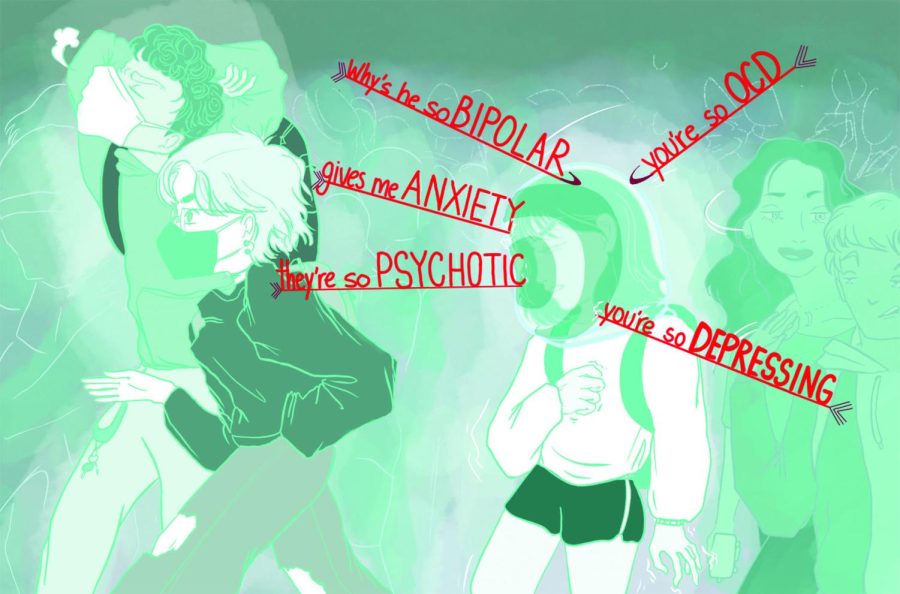Editorial: Mental illness is not a punchline
Phrases such as “the weather is so bipolar,” “if I get a bad grade on this I’m going to kill myself” and “this makes me so OCD” are not uncommon in everyday conversations despite the recent efforts of communities to destigmatize discussions surrounding mental illness.
Although students and teachers may not intend to come across in a negative or offensive way, their word choice can be inconsiderate, hurtful and disrespectful.
When school psychologist Monica Mills hears students passively using the names of mental illnesses in their daily vocabulary, she does not think they are aware of it, Mills said.
“I think it’s very subconscious,” said Mills. “I think it’s just part of their language, part of our culture to talk like that.”
When hearing a mental illness used in such a passive manner, individuals who suffer from that illness may be frustrated because the intensity of their disability is being demeaned.
Expressions that oversimplify a mental illness should not be used to describe trivial circumstances, such as being stressed about a test or having the urge to align a stack of papers. This reverses the efforts that have been made to acknowledge individuals who suffer from mental illness.
Before speaking, consider the potential consequences of words, even if they are not intended to be harmful. Instead of saying “this weather is bipolar,” try “I can’t believe how much the weather has been changing.” Substitute “that mark on the board is making me OCD” with “I don’t like that the board isn’t clean.”
If you hear students or teachers using mental illnesses in a passive way, remind them mental illness is not a joking subject. By being mindful of the words being used, individuals can accurately communicate their emotions without degrading others’ mental health challenges.


